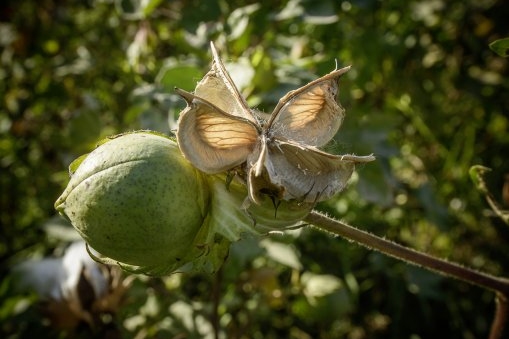
Cotonea research says organic cotton has a positive carbon footprint
YarnsandFibers News Bureau 2021-07-14 10:43:37 – GermanyAccording to organic cotton manufacturer Cotonea, situated in Bempflingen, Germany, a recent study shows that cotton might be the route to a climate-friendly textile sector.
Roland Stelzer, the company's managing director who has been studying the science for over 30 years said that cotton binds CO2 more efficiently than other crops, and organic farming emits less CO2 than conventional crop cultivation. This is due, among other things, to the fact that organic farming does not utilize chemical fertilizers, which generate greenhouse gases. Until recently, he was unaware that cotton had a positive impact on the climate and absorbs CO2 more effectively than other plants.
Kai Hughes, the head of the International Cotton Advisory Committee (ICAC), has addressed this in a scholarly study.
According to the ICAC research, the cotton plant is almost entirely made up of cellulose, which explains this occurrence. The cellulose synthesis process is critical for CO2 absorption. When compared to seven other fiber kinds, nylon manufacturing creates the most greenhouse emissions. Cotton manufacturing emits the second-lowest amount of greenhouse gases. Only flax fiber is claimed to be more environmentally beneficial.
Stelzer explains, putting the rating in the context that this is only partially true. The report neglects to mention that flax plants must be chemically broken up in order to extract the fiber. This energy-intensive processing step isn't utilized in cotton manufacturing, which in turn saves on CO2.
Stelzer added that it may seem ridiculous, but the amount of cotton required to produce 1,000g of fiber absorbs almost 2,500g of CO2. This indicates that Cotonea has sequestered 1,260 tonnes of CO2 during the last year. Climate change is one of the issues that put climate-positive cotton plants in jeopardy. In Uganda, where one of their cotton-growing operations is based, they've seen an increase in weather extremes over the previous five years. Rainfall in the area has grown dramatically over the previous three years, resulting in significant crop losses in 2020.
Stelzer feels that disseminating knowledge about cotton's environmental friendliness through the media is critical to make the fabric more appealing to fashion designers and manufacturers.
He adds that fast fashion, which employs synthetic materials and mixed textiles, and its accompanying throwaway consumerism are primarily to blame for the fashion industry's terrible ecological footprint. Even if all fashion products were made of cotton, existing cotton farming would not be enough to meet present demand. Long-lasting cotton textiles are the answer; they have a good environmental effect, require fewer production stages, and provide better use due to their greater quality and durability.
He explains that not only do they consider the climate in their production processes, but they also demonstrate that they protect biodiversity, soil fertility, and groundwater, that they do not use pesticides or genetically modified organisms, and that they meet many other fundamental aspects of environmental protection and fair trade throughout the supply chain.
Gebr. Elmer & Zweifel, which was founded in 1855, began using organic cotton in 1995. Since then, the Cotonea brand, which was established in 2003, has only sold organic fabrics. The company has assisted in the establishment of organic cotton cultivation projects in Uganda and Kyrgyzstan, and has firsthand knowledge of all stages of the production chain, from ginning and fiber production to yarn spinning, yarn finishing, surface formation, weaving, and knitting, as well as surface finishing and ready-made garments.
Market Intelligence
Ask for free sample Report

experience
Customer Base
dedicated team
Countries Served Worldwide









